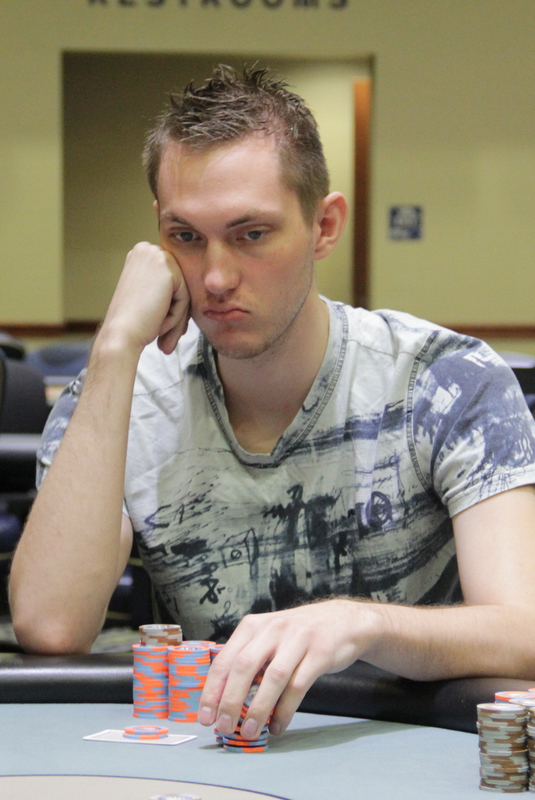






When I Was A Donk – Hunter Cichyby Julio Rodriguez | Published: Jun 07, 2017 |
|
|

Hunter Cichy started playing poker when he was just 12 back in Coon Rapids, Minnesota, but his original goal was to work as a paramedic. However, after finishing the training program and becoming certified, he realized he would be making way more money playing cards for a living.
He ultimately decided to move to South Florida, where he became a regular winner in the big cash games. He’s also had some tournament success finishing runner up in the 2015 $1,000 online event at the WSOP for $116,066, and third in the 2015 Florida State Poker Championship for $104,500.
Now 24, Cichy operates the Check Shove Poker training site. He also wrote a book called Advanced Concepts in No-Limit Hold’em: A Modern Approach To Poker Analysis, which is available on Amazon.
Here, Cichy talks about the importance of knowing your stack size.
I had one situation come up in the $1,500 mixed max event at the 2014 World Series of Poker. This is the event that starts nine-handed and then plays six-handed, four-handed and finally heads-up to determine the winner.
I ended up going really deep, making it to the four-handed part of the tournament. There were 13 players left, spread out at four tables. Between 13th and 12th place, there was a big pay jump, something like $8,000.
Somebody opened the button, and I ended up reshipping about 15 big blinds with A-9. The problem is that I didn’t have 15 big blinds. I actually had something like 22 big blinds and had miscounted.
If I had counted my chips correctly, that was a spot where I would probably have either just called the button’s raise, or made a smaller three-bet. Instead, I ended up getting snapped off by A-Q.
It was just really frustrating because there was something like $400,000 up top and I missed a great opportunity. Not only that, but I also cost myself the pay jump which was pretty significant as well.
It did teach me to have more situational awareness, however. I learned how to stay in the moment. You have to be mindful of not only your stack and how it’s affected by the blinds, but also your opponent’s stack size.
You also have to pay attention to your opponents when you aren’t in the hand. Or even when they aren’t in a hand. I like to gauge how comfortable players look when they aren’t in a hand, so I can compare that how they look after they make a big bet on the river or something like that. ♠
Features
The Inside Straight
Strategies & Analysis